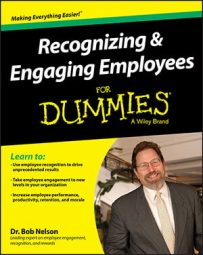One of the most defining characteristics of the Millennial generation is its significant need for constant feedback and praise at work. This need can be frustrating for other generations to understand, as in, "I just told you last week that you were doing a good job. Do I really have to tell you again?"
It's easy to dismiss this need as being a symptom of a generation spoiled by parents who showered them with constant praise and protected them from the harsher realities of life, or to believe that Millennials have frail egos and constantly need to be puffed up.
But instead, consider this perspective: The Millennials are smart enough to realize that in fast-moving, constantly changing times, people need constant feedback to be on the mark and to adjust their performance accordingly. Think about the level of video game feedback, something that's second nature to this generation. Reportedly, someone playing a video game gets feedback over 50 times per minute.
Because job requirements and expectations are constantly in flux, yesterday's feedback may no longer be relevant today. Constant feedback, thus, is necessary, not as a way to pump up a frail ego but as a practical way to show employees when they are on track so that they can continue to do good work day after day for their managers and employers. Feedback and praise serve as an emotional reinforcement as well as a practical mechanism for communication for this generation — they love it.
"Constant feedback," doesn't mean micromanaging, a negative term that is almost always associated with an ongoing stream of negative feedback on even the smallest of items and corrections that a manager makes to control an employee's performance. No one feels micromanaged when the boss tells them in specific detail what he or she most liked about a great job the employee did.
Make it a high priority to provide greater and more frequent praise and recognition in a greater variety of forms. Equally important, but far less often (perhaps quarterly), would be having developmental discussions, in which you can focus on ways the employee can improve. When you build on a strong foundation of ongoing positive feedback, employees are more likely to trust that you are on their side and thus be more willing to accept constructive criticism from you when it is offered.
As you offer praise and feedback, keep these suggestions in mind:
Base your (frequent) feedback employees' performance. But be aware that this may be a new perspective for many of them, if they grew up getting trophies even when their team lost or got all As a result of rampant grade inflation in schools.
Provide a context for how Millennials' contributions relate to team and organizational goals, to the organization's customers, and even to society. This systematic framing of feedback and praise elevates it from unearned hype to practical information that can help shape desired behaviors and results you need from them.
Be authentic. Provide direct and honest feedback and evaluations that can best help Millennials excel and help them build trust in you, their manager, all the more in the process.

